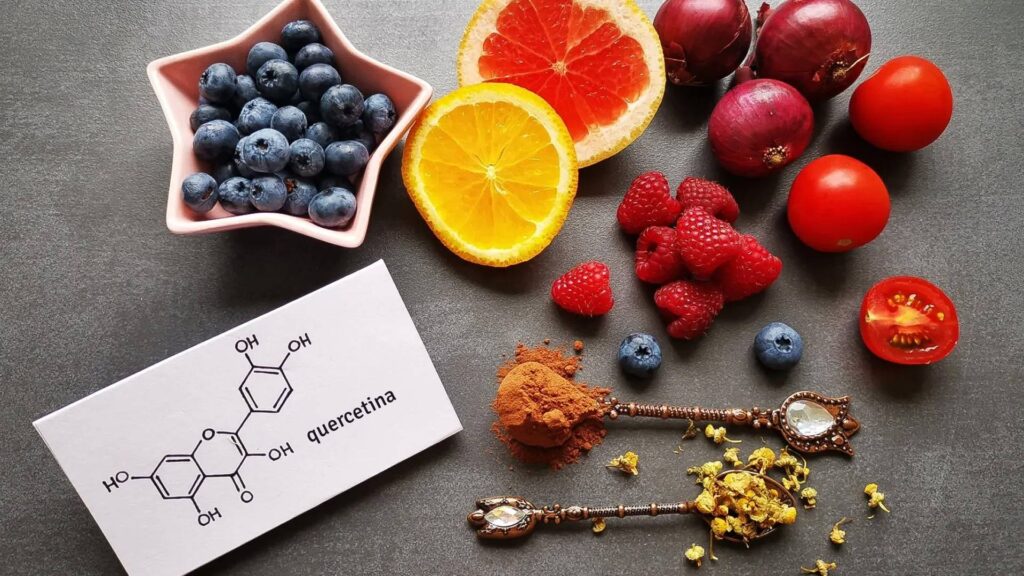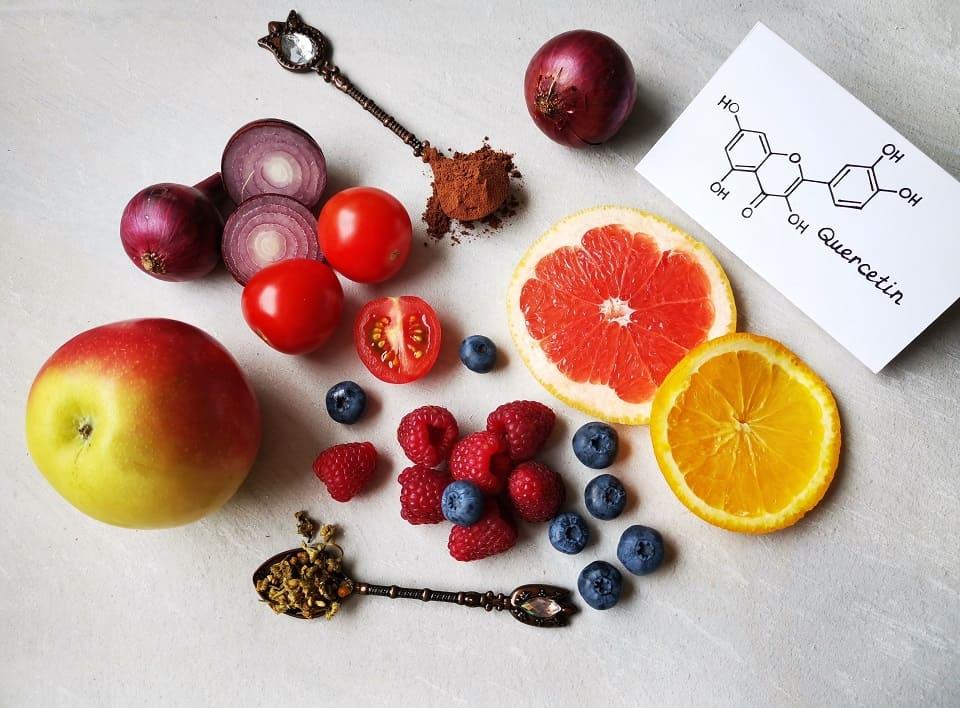In the world of natural health, few compounds have garnered as much attention as quercetin—a flavonoid found in a wide range of fruits, vegetables, and herbs. Often celebrated for its antioxidant, anti-inflammatory, and immune-boosting properties, quercetin has become a popular supplement for those looking to support their overall health naturally.
But what exactly is quercetin, and what makes it so beneficial? Let’s take a closer look at this powerhouse compound and the science-backed health benefits it offers.
What Is Quercetin?
Quercetin is a type of flavonoid, a class of plant compounds that act as natural antioxidants. It’s found in many common foods, including:
- Apples
- Onions
- Berries
- Grapes
- Citrus fruits
- Kale and spinach
- Green tea
- Red wine
Though it’s present in many foods, some people take quercetin supplements to achieve higher, more therapeutic doses—especially for managing inflammation or allergies.
Top Health Benefits of Quercetin
1. Powerful Antioxidant Effects
Quercetin helps neutralize free radicals, unstable molecules that damage cells and accelerate aging. This antioxidant protection can reduce the risk of chronic diseases like heart disease, cancer, and neurodegenerative disorders.
2. Anti-Inflammatory Action
Chronic inflammation plays a role in many health issues, from arthritis to heart disease. Quercetin inhibits inflammatory pathways and reduces the production of pro-inflammatory cytokines, helping to calm systemic inflammation.
3. Immune System Support
Quercetin enhances immune function by modulating immune responses and reducing excessive inflammation. It may also have antiviral properties, helping to fight infections like the common cold and potentially even more serious viruses.
4. Natural Antihistamine for Allergies
Quercetin stabilizes mast cells, which are responsible for releasing histamine—the chemical behind allergic reactions. This makes it a popular natural remedy for seasonal allergies, hay fever, and sinusitis.
5. Supports Heart Health
Quercetin may help reduce blood pressure, improve blood vessel function, and lower LDL (bad) cholesterol levels—all of which contribute to a healthier cardiovascular system.
6. May Aid in Exercise Recovery
Athletes and active individuals may benefit from quercetin’s ability to reduce oxidative stress and muscle inflammation, leading to faster recovery and less post-workout soreness.
7. Supports Brain Health
Preliminary research suggests quercetin may help protect the brain from oxidative damage, possibly reducing the risk of Alzheimer’s disease and cognitive decline.
8. May Help Regulate Blood Sugar
Quercetin has been shown to improve insulin sensitivity and regulate glucose metabolism, making it potentially beneficial for people managing type 2 diabetes or prediabetes.
How to Take Quercetin
Dietary Sources
Eating a variety of colorful fruits and vegetables is the easiest way to increase your intake of quercetin naturally. Onions, especially red onions, are among the richest sources.
Supplements
Quercetin supplements are available in capsules, tablets, and powders. They’re often combined with vitamin C or bromelain (an enzyme from pineapple) to enhance absorption.
Recommended Dose:
Typical supplemental doses range from 500 mg to 1,000 mg daily, though it’s best to consult with a healthcare provider for personalized advice.
Safety and Side Effects
Quercetin is generally well-tolerated, but some people may experience:
- Headaches
- Nausea
- Stomach upset
High doses over long periods should be used with caution, especially if you’re on medications or have underlying health conditions. Always consult a healthcare professional before starting a new supplement regimen.

Quercetin is a potent flavonoid with a wide range of health benefits—from fighting inflammation and allergies to supporting heart and immune health. Whether through diet or supplementation, increasing your quercetin intake can be a smart, natural way to enhance your well-being.
Have you tried quercetin for allergies, immune health, or fitness?
Share your experience in the comments below!

